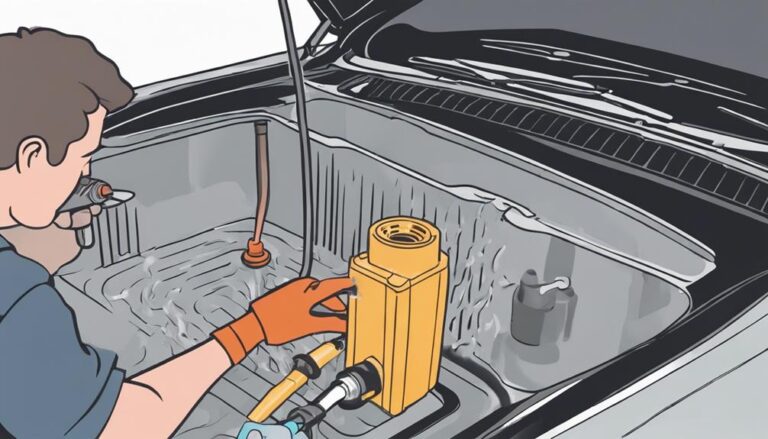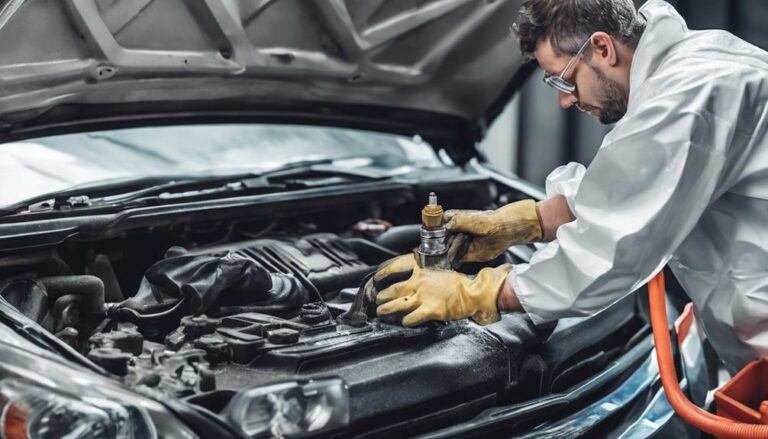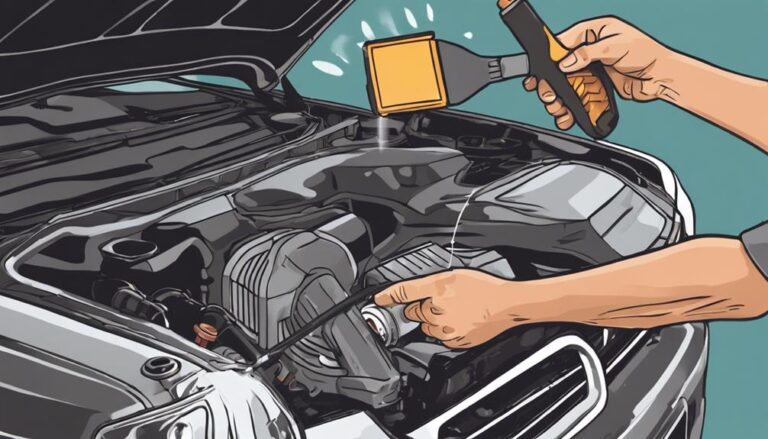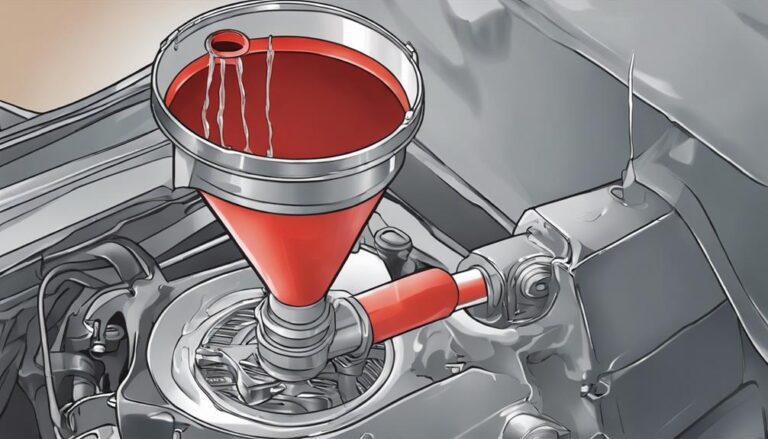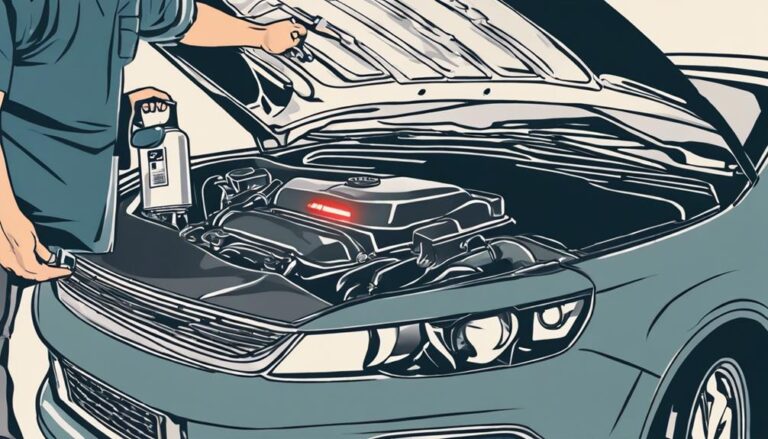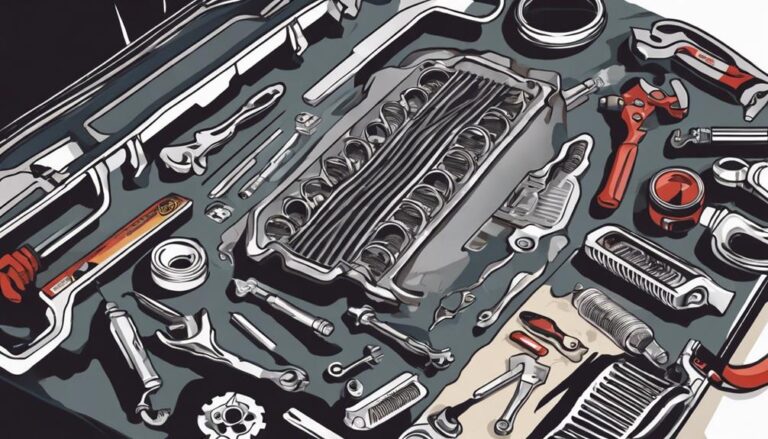Optimizing Winter Car Cooling System Performance: Tips
In the frosty embrace of winter, your car's cooling system faces a formidable challenge. Ensuring its optimal performance is key to your vehicle's health and your safety on the road.
So, how can you make sure your car is ready to tackle the cold season efficiently and effectively? Let's explore some expert tips that will help you navigate the icy roads and keep your engine running smoothly.
Key Takeaways
- Maintain proper coolant levels to prevent freezing and ensure efficient heat transfer.
- Regularly check for cooling system leaks to prevent damage and maintain performance.
- Inspect belts and hoses for integrity to avoid overheating and system failures.
- Conduct annual radiator flushing and use cold weather coolant for optimal winter performance.
Understanding Winter Cooling System Challenges
In winter, your car's cooling system faces unique challenges that can significantly impact its performance and your engine's health. Winter driving conditions can cause coolant to freeze, posing a severe risk to engine protection. The cold weather increases the likelihood of radiator clogs due to snow and ice, hindering proper heat dissipation.
Lower temperatures also reduce the efficiency of the cooling system, affecting overall engine performance. Moreover, the engine may experience longer warm-up times in cold weather, necessitating meticulous maintenance practices. Insufficient cooling system performance during winter can lead to overheating, posing a substantial risk of potential engine failure.
To ensure optimal engine protection during winter driving, it's crucial to address these challenges proactively. Regular maintenance, monitoring coolant levels, and ensuring proper functioning of the cooling system are essential steps to safeguard your engine's well-being in cold weather conditions.
Importance of Proper Coolant Levels
Maintaining optimal coolant levels in your vehicle is critical for ensuring efficient heat transfer and proper regulation of engine temperature. Coolant acts as a heat transfer fluid, absorbing and dissipating heat to maintain optimal engine temperature. Low coolant levels can lead to overheating, engine damage, and decreased performance. Additionally, maintaining correct coolant levels helps prevent corrosion, freezing, and internal engine component damage. Regularly checking and topping off coolant levels is a simple yet essential aspect of vehicle maintenance to ensure cooling system effectiveness.
| Importance of Proper Coolant Levels | |
|---|---|
| Coolant Effectiveness | High |
| Temperature Regulation | Optimal |
| Prevents Engine Damage | Yes |
Checking for Cooling System Leaks
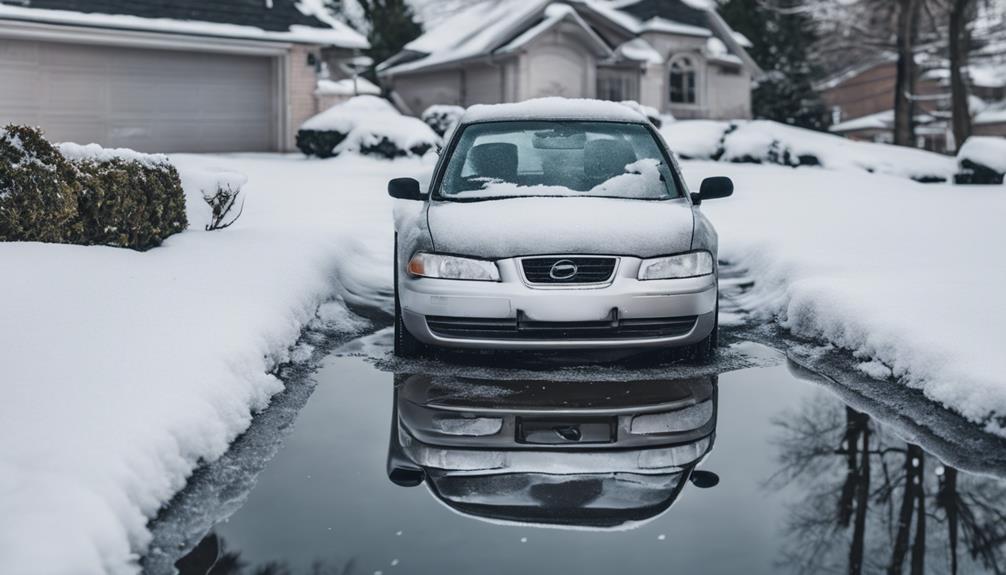
To effectively identify potential cooling system leaks, conduct a thorough inspection of key components such as radiator hoses, the water pump, the heater core, and the radiator itself. When checking for cooling system leaks, consider the following:
- Visual Inspection: Look for any visible signs of coolant leaks, such as puddles under the vehicle or damp spots on components.
- Pressure Test: Utilize a pressure test to pinpoint the location of the leak within the cooling system accurately.
- Coolant Analysis: Perform a chemical test on the coolant to detect any combustion byproducts, indicating a potential internal leak.
Leak detection methods such as pressure testing can help you pinpoint the exact source of the issue, allowing for targeted repairs. When faced with cooling system leaks, prompt action is crucial.
Repair options range from simple fixes like replacing a damaged hose to more complex repairs on components like the water pump or radiator. Addressing leaks promptly is essential to prevent engine damage and maintain optimal cooling system performance.
Inspecting Belts and Hoses
Inspecting belts and hoses for wear, cracks, or leaks is crucial in maintaining the integrity of your vehicle's cooling system. Belt tension is a critical factor to ensure efficient operation and prevent slipping that could lead to overheating.
Regularly check hoses for soft spots, bulges, or leaks as any damage can result in coolant leaks and potential engine damage. It's recommended to replace belts and hoses every 60,000 to 100,000 miles to ensure reliable cooling system function.
Neglecting this maintenance can result in sudden breakdowns, overheating, and expensive repairs, underscoring the significance of routine inspections. By monitoring belt tension and hose condition, you can significantly reduce the risk of cooling system failures.
Tips for Efficient Radiator Maintenance
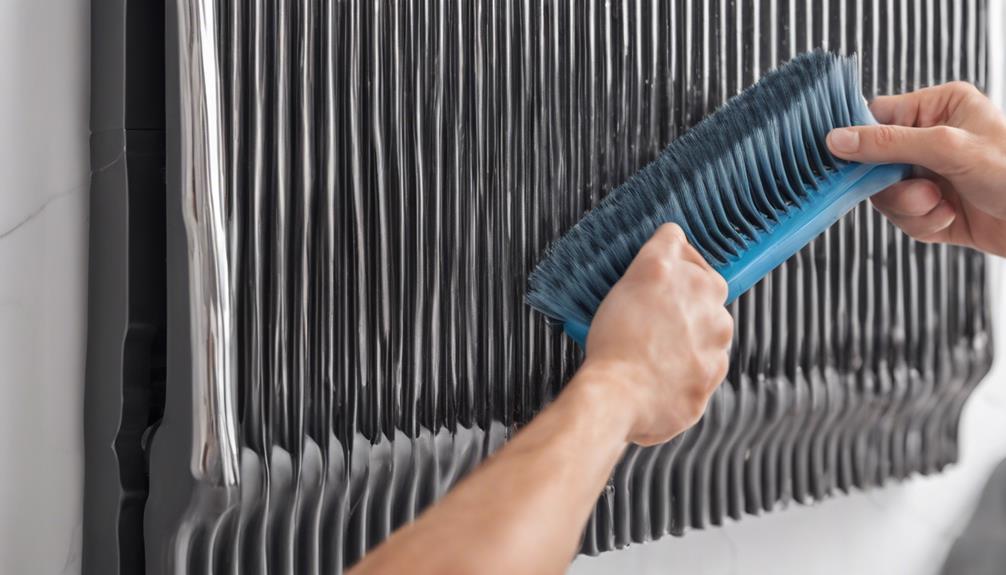
Regularly flushing the radiator annually is crucial for removing sediment buildup and ensuring optimal heat transfer efficiency. When it comes to efficient radiator maintenance, consider the following tips:
- Radiator Flushing Techniques: Utilize proper flushing methods to eliminate debris and contaminants that could hinder the radiator's performance.
- Winter Coolant Types: Use coolant specifically designed for cold weather to prevent freezing and maintain proper fluid viscosity for effective heat dissipation.
- Regular Inspection: Check radiator hoses, fins, temperature, and pressure levels routinely to catch any potential issues early on and prevent overheating problems.
Frequently Asked Questions
How Can I Improve My Car Radiator Performance?
To enhance your car's radiator performance, prioritize radiator maintenance. Regular flushing, using flush solutions, inspecting hoses, and adding a fan shroud can optimize cooling efficiency. Consider upgrading to a high-performance radiator for improved cooling capacity in demanding conditions.
Should I Get a Coolant Flush in the Winter?
In winter, you should get a coolant flush to optimize winter maintenance and maintain proper coolant levels. This winter, ensure your car's cooling system is ready for the cold to prevent engine issues.
Will a Coolant Flush Improve Performance?
Regular coolant maintenance benefits your car by enhancing performance. It prevents corrosion and ensures optimal function. In winter, proper coolant care is crucial for efficient cooling. Take precautions to maintain your system for smooth winter driving.
How Can I Improve My Engine Cooling?
To enhance your engine cooling, consider replacing the thermostat and cleaning the radiator. Upgrading the fan and inspecting the water pump can also boost performance. Addressing these components ensures optimal cooling efficiency, preventing potential overheating.
Conclusion
You have taken the necessary steps to optimize your winter car cooling system performance.
Did you know that a 10% loss of coolant can lead to a 50% reduction in heat transfer efficiency?
By maintaining proper coolant levels, checking for leaks, and inspecting belts and hoses, you ensure your vehicle operates at peak performance in cold weather conditions.
Stay proactive in your maintenance routine to avoid costly repairs and keep your car running smoothly all winter long.


